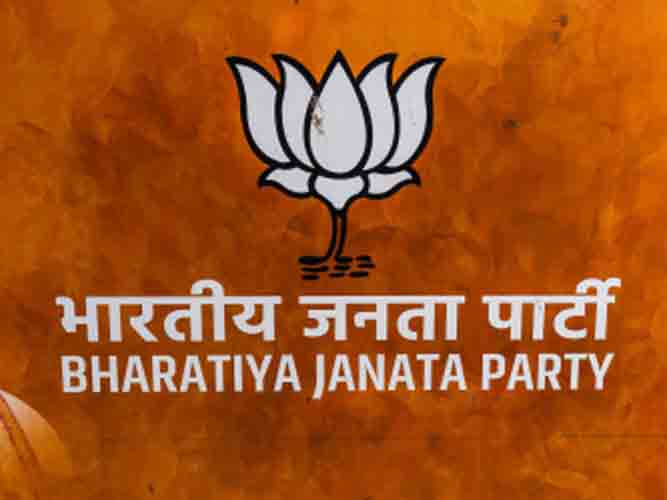The Bharatiya Janata Party, which showcases itself as the largest political outfit in the world, and boasts of having in its ranks some of the best organisational brains, appears to have gone wrong in the Delhi elections. Regardless of the outcome, the BJP has throughout the campaign allowed the AAP to have an upper hand and thus it is most unlikely that the result would spring any major surprises.
On the other hand, Kejriwal has succeeded in making himself the main focal point of this poll—in the same manner as Narendra Modi did during the 2019 Parliamentary elections, where the BJP scored a landslide victory. The saffron leadership used every trick in the book, yet could not change the perception, which, to begin with, had the Delhi Chief Minister as the front-runner in this seemingly uneven contest.
The fundamental mistakes that the BJP has made pertain to the failure of its top functionaries to adequately involve the local leadership. It was evident that those entrusted with the task of running the campaign were unfamiliar with many grass-roots issues, and whipped up a hype which was not congruent with the ground reality. Manoj Tewari is a two-time Lok Sabha MP, but still is considered to be an outsider, so far as the core BJP vote base in the city is concerned. His emphasis has been only on the Poorvanchali voter, while he struggled to carry the traditional supporter with him.
It is a historical fact that Delhi has been the nucleus of the Sangh politics; beginning from the Jana Sangh till the formation of the BJP, the capital city was the hub from where the party and its ideology grew. The Punjabi refugees—who were forced out from West Punjab after Partition—formed the backbone of the organisational structure, with the local Bania population also playing a stellar role. The rise of Balraj Madhok and subsequently of Manohar Lal Sondhi, Vijay Kumar Malhotra, Kedar Nath Sahani and Madan Lal Khurana was proof that the Punjabi domination of the city was absolute.
The supreme irony is, that when today, the BJP’s top leadership recalls the Partition, and the “historical blunders” of the Congress, it itself has failed to project any credible face in the city. The BJP does not have an acceptable Punjabi leader in its ranks, and its aggression in the electoral arena is not because of the passion with which functionaries from this community espoused the Sangh’s cause, but is purely on the basis of sectarian and divisive politics.
Going by past record, every top Jana Sangh/BJP leader found it safe to contest from Delhi. After Madhok, it was Atal Bihari Vajpayee who in 1977 and 1980 won two elections from New Delhi. In 1989, L.K. Advani made his Lok Sabha debut from the same seat, and in 1991 went on to win again. Sushma Swaraj emerged victorious twice over from South Delhi. In 1999, V.K. Malhotra defeated Dr Manmohan Singh from South Delhi; he was both a part of the Lok Sabha and Rajya Sabha multiple times. Khurana was triumphant four times in the Lok Sabha, and in all won 10 out of the 11 elections he contested from the capital.
Out of the current lot, Vijay Goel—who is a Rajya Sabha MP from Rajasthan—has prevailed thrice from Delhi, and could have been a combative nominee to take on Kejriwal. Other than him, Dr Harsh Vardhan is one of the most acceptable contenders, but seems content with his stint in the Union Cabinet.
By deploying more than 200 MPs and over 13 Chief Ministers, the BJP has possibly made a counterproductive move. The party’s strategists fielded key leaders from UP and Bihar, in constituencies with sizeable Poorvanchali votes, without realising that those who have shifted to Delhi came here to start life afresh.
As a rule, no one wants to leave their home and hearth but if these people have come to the city it is solely because the leaders in their own states failed them, leaving them with no other option but to set up new dwellings. Therefore, what would it matter to them even if Nitish Kumar and Yogi Adityanath campaigned? They would prefer being associated with local leaders who could probably assist them in their day-to-day living.
The second fundamental tactical mistake the BJP has made is that it floundered to halt Kejriwal’s prospects. Ideally speaking, with enormous resources at its command, the BJP should have facilitated the Congress by propping up its candidates in 40 to 50 seats, to stall AAP’s rise. Therefore, if the perception of the Congress being a potent player in the triangular fight would have gathered momentum, the AAP would have been affected. The political situation being: if the Congress is weak, the AAP wins, and if the Congress is strong, the BJP would have the advantage.
The bad news for the BJP is that the Congress has shown no resilience, thereby allowing the AAP to seize the initiative. Most of the opinion polls have predicted that Kejriwal is way ahead, and his party was raking in over 50% of the vote-share. On the other hand, the BJP perhaps will be unable to cross even 40, with the Congress may be as low as 4-5%.
If these figures are accurate, then the AAP is most comfortably placed, and Kejriwal is poised to be the Chief Minister once again. Of course, the BJP and the Congress will have new lessons to learn. Between us.

